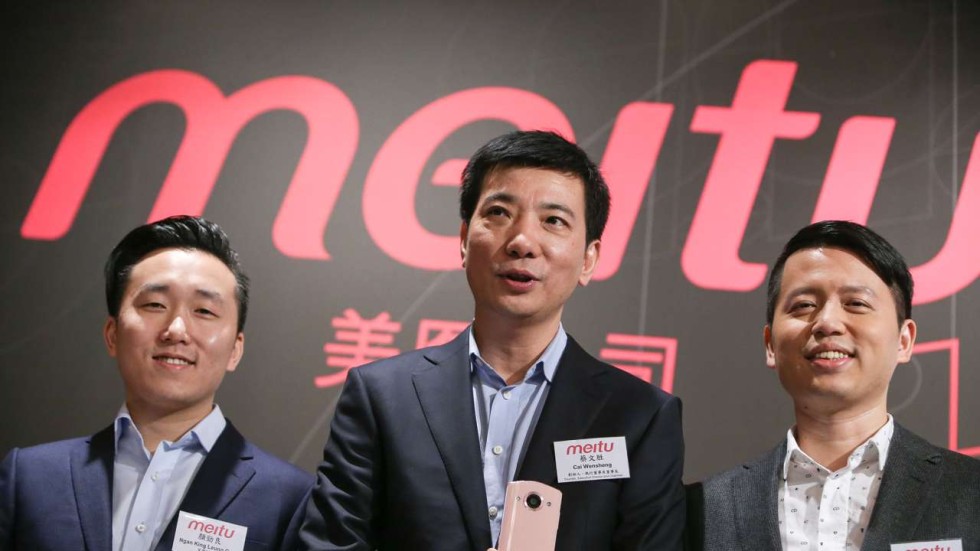China adds Pinterest to list of banned sites
by Sherisse Pham 
China's Great Firewall is cracking down on Pinterest, the social media platform popular for letting users share, or pin, items of interest to a virtual board.
For years, Pinterest has been freely accessible in China, most likely because its users typically don't share content that would rattle Chinese censors.
People mostly use the site to pin images and tips on home decor, hair styles, cooking, wedding planning and fashion.
The Pinterest block started earlier this month, according to watchdog group Greatfire.org, which monitors censorship and accessibility of websites in China.
The timing coincided with China's annual National People's Congress, a sensitive time in Beijing when China's top leadership and thousands of delegates gather to set the country's political and economic course for the year.
Pinterest did not respond to a request for comment outside of business hours.
The Pinterest block started earlier this month, according to watchdog group Greatfire.org, which monitors censorship and accessibility of websites in China.
The timing coincided with China's annual National People's Congress, a sensitive time in Beijing when China's top leadership and thousands of delegates gather to set the country's political and economic course for the year.
Pinterest did not respond to a request for comment outside of business hours.
China's Cyberspace Administration did not respond to a request for comment.
Pinterest's ban fits a pattern of China blocking sites that compete with emerging local rivals.
China's censorship has effectively "become a tool of industrial policy to discriminate against foreign competitors," wrote Cho-Wen Chu, a professor at Taiwan's Chinese Culture University, in a paper published in January.
A crackdown on Google, YouTube, Twitter and Facebook helped domestic companies such as Baidu, Youku, Weibo and Renren flourish.
The Western sites were widely used to share content China would deem highly sensitive, like the 1989 crackdown on Tiananmen Square protests, Tibet, or the Dalai Lama.
But Pinterest, Facebook's Instagram, or even Snapchat, are not known for their political content.
"China's 'national security' concerns may be only a convenient excuse to favor domestic dotcoms by impeding fair competition," according to Chu.
Banning Western rivals gives Chinese tech companies, including Alibaba's Pinterest rival Faxian, and Instagram imitator Meitu a huge advantage.
China has 731 million internet users, and 95% of them access the web on mobile devices, according to data from the China Internet Network Information Centre.
With that many mobile users tapping into apps and shopping on their smartphones, China is a lucrative market for any social media platform, a fact not lost on Pinterest President Tim Kendell.
Pinterest's position as a "catalogue of ideas" rather than a social network gives the company a big push in areas of the world like China, Kendell said in an interview with Fox News last year.
Pinterest users "are not there to share things with their friends and family, they are not there to find out what their friends and family are doing. So it's not this community planning tool," he said.
Pinterest's ban fits a pattern of China blocking sites that compete with emerging local rivals.
China's censorship has effectively "become a tool of industrial policy to discriminate against foreign competitors," wrote Cho-Wen Chu, a professor at Taiwan's Chinese Culture University, in a paper published in January.
A crackdown on Google, YouTube, Twitter and Facebook helped domestic companies such as Baidu, Youku, Weibo and Renren flourish.
The Western sites were widely used to share content China would deem highly sensitive, like the 1989 crackdown on Tiananmen Square protests, Tibet, or the Dalai Lama.
But Pinterest, Facebook's Instagram, or even Snapchat, are not known for their political content.
"China's 'national security' concerns may be only a convenient excuse to favor domestic dotcoms by impeding fair competition," according to Chu.
Banning Western rivals gives Chinese tech companies, including Alibaba's Pinterest rival Faxian, and Instagram imitator Meitu a huge advantage.
China has 731 million internet users, and 95% of them access the web on mobile devices, according to data from the China Internet Network Information Centre.
With that many mobile users tapping into apps and shopping on their smartphones, China is a lucrative market for any social media platform, a fact not lost on Pinterest President Tim Kendell.
Pinterest's position as a "catalogue of ideas" rather than a social network gives the company a big push in areas of the world like China, Kendell said in an interview with Fox News last year.
Pinterest users "are not there to share things with their friends and family, they are not there to find out what their friends and family are doing. So it's not this community planning tool," he said.





